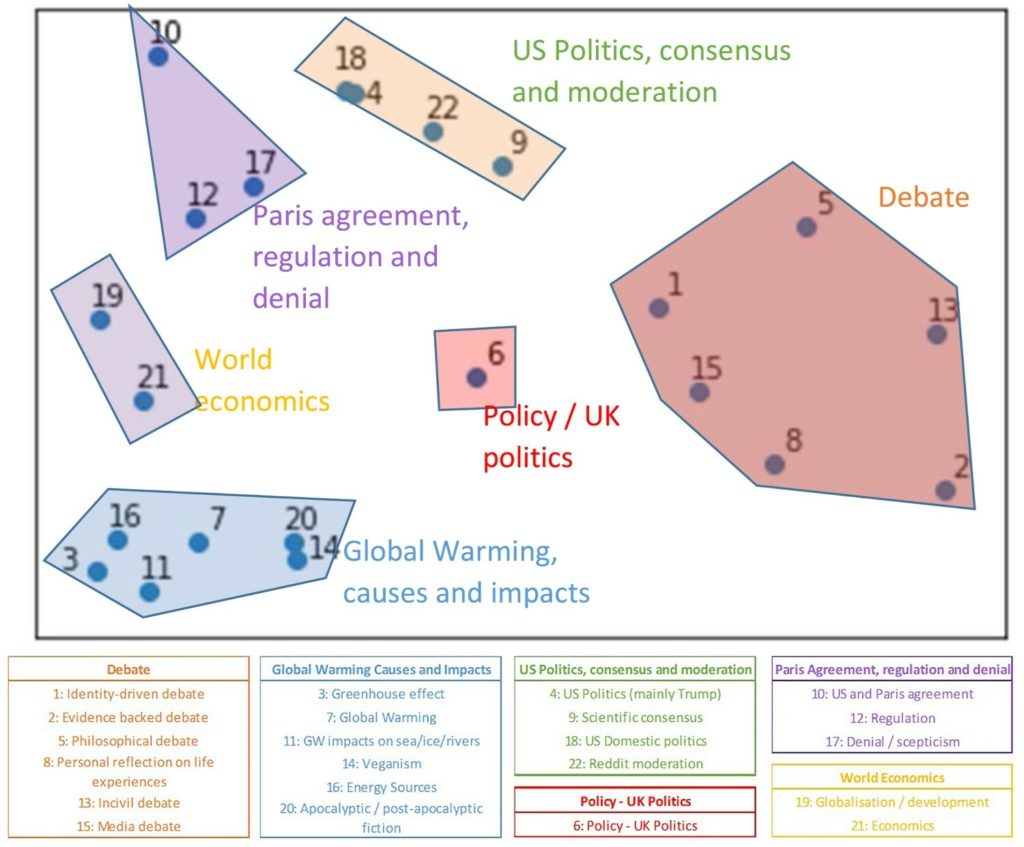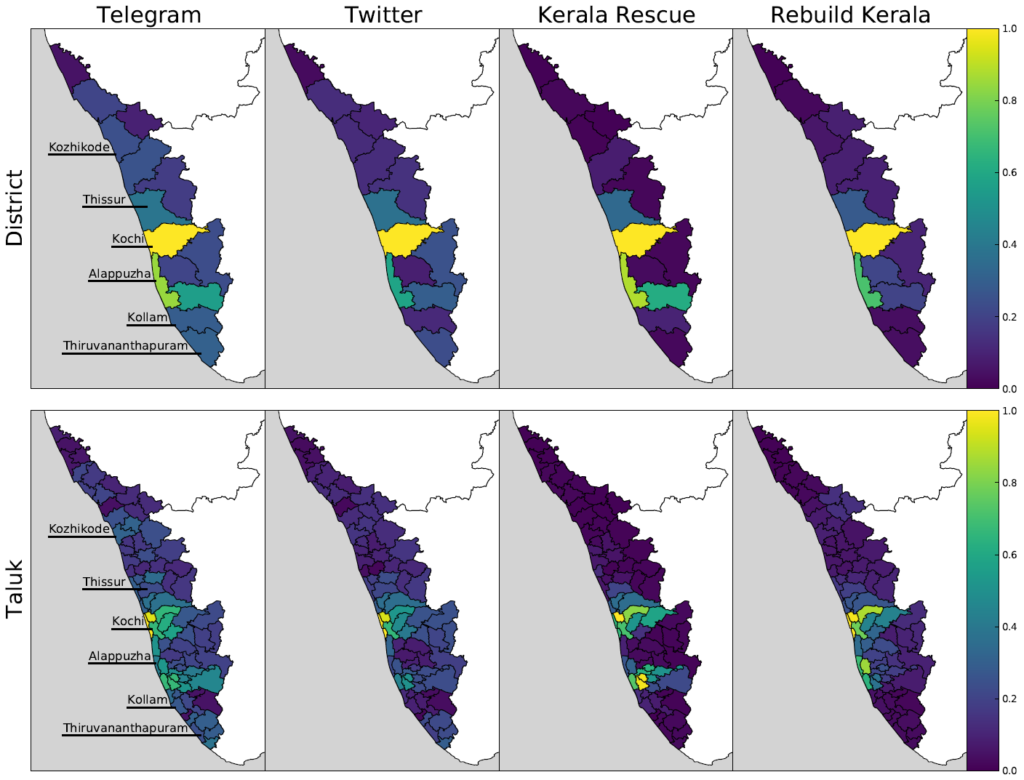Kathie and Hywel have recently published a paper exploring the level of polarization around the climate change conversation on Reddit. The full paper is available online in Environmental Communication.
Studies of climate discourse on social media platforms often find evidence of polarization, echo chambers, and misinformation. However, the literature’s overwhelming reliance on Twitter makes it difficult to understand whether these phenomena generalize across other social media platforms. Here we present the first study to examine climate change discourse on Reddit, a popular – yet understudied – locus for climate debate. This contributes to the literature through expansion of the empirical base for the study of online communication about climate change beyond Twitter. Additionally, platform architecture of Reddit differs from many social media platforms in several ways which might impact the quality of the climate debate. We investigate this through topic modeling, community detection, and analysis of sources of information on a large corpus of Reddit data from 2017. Evidence of polarization is found through the topics discussed and sources of information shared. Yet, while some communities are dominated by particular ideological viewpoints, others are more suggestive of deliberative debate. We find little evidence for the presence of polarized echo chambers in the network structure on Reddit. These findings challenge our understanding of social media discourse around climate change and suggest that platform architecture plays a key role in shaping climate debate online.





